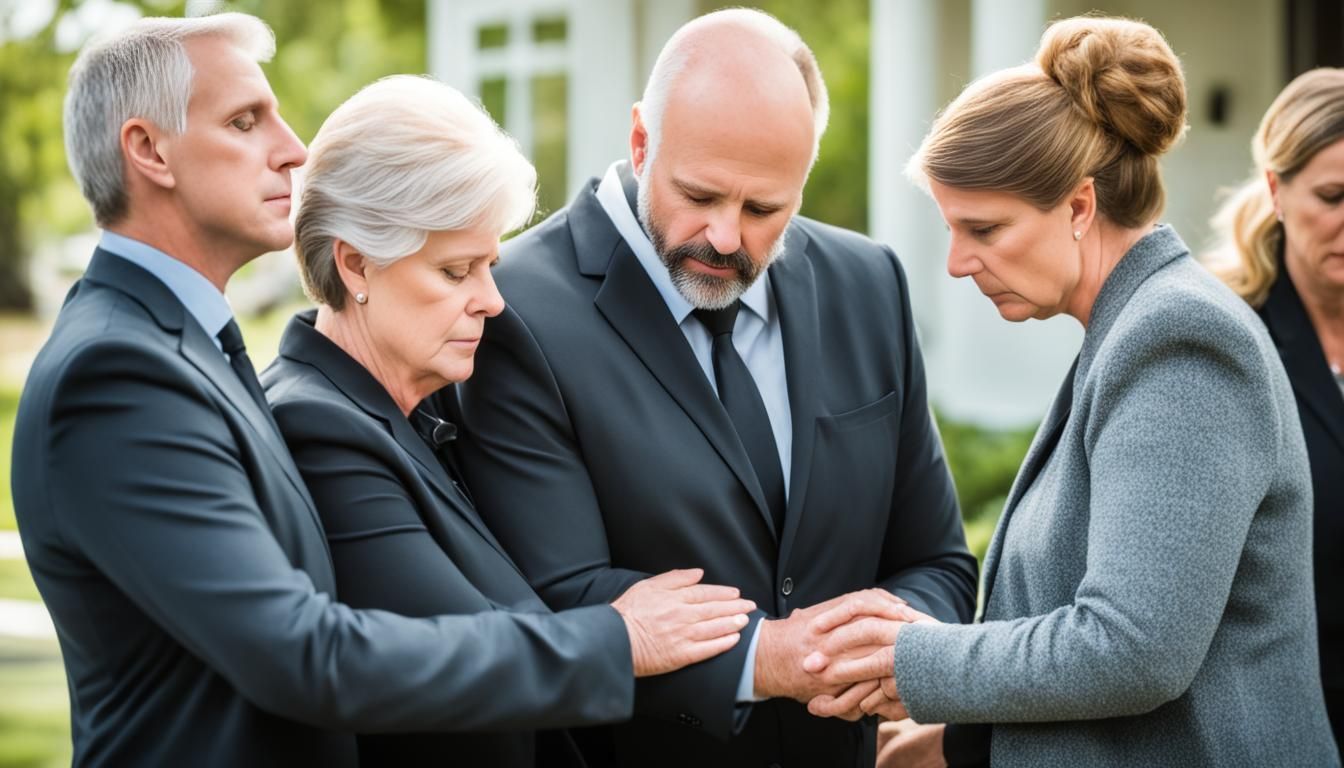Supporting Grieving Friends: How to Listen Effectively
Supporting Grieving Friends: How to Listen Effectively
When a friend faces loss, their world turns into a stormy sea of emotions. They might feel deep sadness or raging anger. In these moments, finding the right words is hard. Yet, the way we listen can be a great source of comfort. How to listen to someone who is grieving isn't always clear, but we can learn. It's about showing compassion, being fully present, and having patience. In tough times, like the isolation during the COVID-19 pandemic, supporting a grieving friend is vital. This article explores communication skills for grief support. We'll understand not just the 'how', but also the 'why', behind empathetic listening techniques.
To truly support someone, we must fully engage. This means putting our own thoughts aside to understand their pain. It's more than just hearing them; it's about building trust, understanding, and a deep connection. By doing this, we become a stable support. We help them through their journey to healing.
Key Takeaways
- Understanding the transformative power of active listening in grief support.
- Developing a calm, alert, and focused approach to support those in mourning.
- Enhancing trust and connection through empathetic and non-judgmental listening.
- Learning essential communication skills to aid friends navigating loss.
- Utilizing empathetic listening techniques to become a source of comfort and solace.
The Essentials of Empathetic Listening Techniques
When you're trying to comfort a grieving loved one , empathetic listening is key. It means really hearing them and getting the emotions behind their words. Get good at this, and you'll build trust and deepen your bond, helping them through a tough time.
Understanding the Role of Body Language and Non-Verbal Cues
Words are just part of the story when offering support during grief. Things like keeping eye contact, having an open body pose, and nodding show you're fully there and empathetic. These silent signals can mean more than any words, making the person feel seen and comforted as they share their sorrow.
Utilizing Active Listening Skills to Foster Connection and Trust
Active listening means really engaging, not just hearing. You must focus fully and reply with your heart. By rephrasing what they've said and clearing up doubts, you make them feel valued and understood. This kind of attention builds trust, a must-have for supporting someone who's grieving.
Avoiding Common Pitfalls: Knowing What Not to Say
Knowing what hurts is as important as knowing what helps in grief support. Avoid saying things like "time heals all wounds," as it might feel dismissive to someone in mourning. Instead, put their feelings and experiences first, skipping clichés or advice they didn’t ask for.
It's crucial to know what helps and what doesn't. This way, you can offer a judgement-free zone for the grieving. Stick to these strategies, and you'll be a real support on their journey through grief.
| Do Say | Don't Say |
|---|---|
| "I'm here for you." | "He/she is in a better place." |
| "Take all the time you need." | "At least he/she lived a full life." |
| "Your feelings are valid." | "Let's try to focus on the positive." |
Listen well and be gentle. This can truly help someone heal from their loss, making a real difference.
How to Listen to Someone Who is Grieving
Learning how to listen with empathy is key when helping someone through grief. It's important to focus on understanding their feelings. This requires putting aside your own thoughts and truly listening.
Every person's experience with grief is different. It's best not to compare or give advice without being asked. Just being there for them can be a great comfort.
Empathy involves more than just the right words. It's about sharing emotional moments and supporting them without adding pressure. This helps create a space where they feel safe to share their feelings.
“Sharing your silent presence can oftentimes speak louder than any words of comfort.”
Here are some ways to support someone who is grieving:
- Listen actively and don't think about what to say next.
- Use verbal affirmations to show you understand their pain.
- Let them guide the conversation without trying to control it.
- Be careful not to project your own feelings onto their experience.
Adding moments of prayer or silent support can also be meaningful. It helps the person feel they're not alone in their pain.
Using empathetic listening and communication skills shows you recognize their grief. It proves your dedication to supporting them through their healing journey.
Conclusion
Helping a friend who is mourning is more than just wanting to help; it involves empathy and patience. Everyone's journey through grief and loss is personal and cannot be fixed easily. We must recognize this to truly support them as they face their grief's ups and downs. Learning how to listen to someone who is grieving makes us a source of comfort. We stand with them through their toughest times.
Being there for someone in grief means really listening. This kind of active listening makes them feel understood and supported. We offer comfort and friendship by showing true care. This can help them feel less alone in their deep sadness.
Our goal is to be a dependable friend during tough times. We might not be able to take away their sorrow. But, our caring presence can bring a bit of light to their dark days. By truly listening and understanding, we offer the kindness they need when they feel most vulnerable.
FAQ
What are some empathetic listening techniques that can help when supporting a grieving friend?
Use empathetic listening by fully focusing on your friend. Understand their point of view. Show this through nods and eye contact. Repeat their words to show you get them. Validate their feelings. Make a space where they can share openly without fear of being judged.
How important is body language when listening to someone who is grieving?
Your body language shows a lot of support. Nonverbal signals like keeping eye contact show that you care. Keeping an open posture and nodding shows empathy. This all helps the grieving person feel supported.
What does active listening involve when supporting someone in grief?
Active listening means being there fully. No distractions. Focus on the speaker. Show you're listening by nodding or using short verbal responses. Summarize what they say to show it matters to you. This approach respects their feelings.
What are some things to avoid saying to someone who is mourning?
Don't use tired phrases like "they’re in a better place." These can dismiss their pain. Be real and empathetic instead. Don't compare their loss to anything else. Especially avoid talking about your own losses unless it really helps.
How can we foster trust through listening to someone who has experienced loss?
Build trust by being patient and understanding. Keep what's shared private. Show you take their feelings seriously. Being a good listener and responding with empathy helps. This creates a trusted bond.
Can you suggest any effective communication skills for grief support?
Speak gently and offer comfort. Ask questions that invite them to share more. Actively listen and don’t interrupt. Show compassion. Let them know you understand through what you do and say.
What tips can you offer for listening to someone in mourning?
Listen more than you talk. Give them all your attention. Be patient as they might repeat their story. Let them share their feelings. Support them without giving too much advice.










